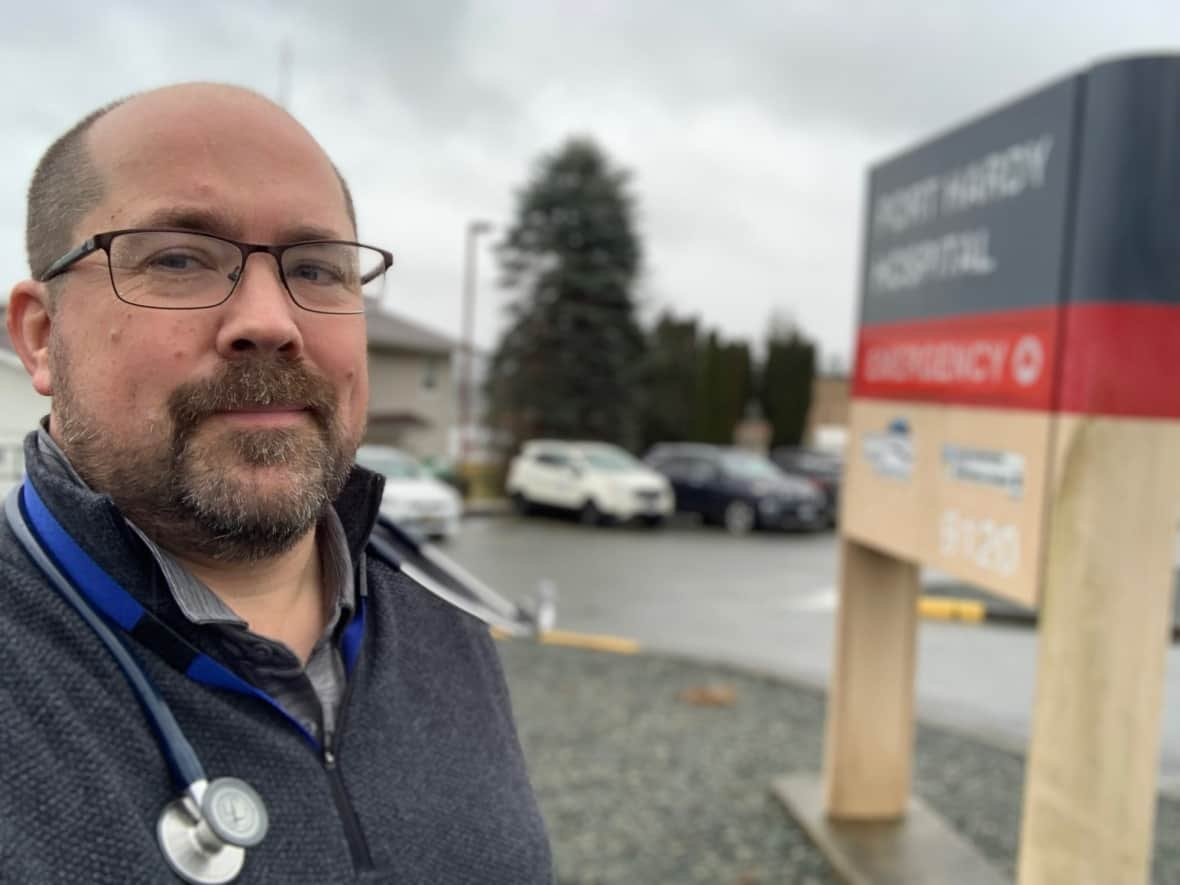More staff needed in rural ERs, says Doctors of B.C. president

After spending the long weekend in an understaffed, often closed emergency room, the president of Doctors of B.C. is echoing calls for increased staffing in rural hospitals.
Dr. Joshua Greggain, who practises out of Hope, B.C., travelled to Port Hardy on northern Vancouver Island last week to help out with staffing shortages and observe how the hospital is handling it.
"As a rural family physician, I get to do a lot of things, and one of those things is to go and pitch in in places that are a bit short-staffed or could use some more physicians and nurses," he told All Points West host Jason D'Souza.
Last month, the province announced that the Port Hardy Hospital's emergency room would be open from 7 a.m. until 5 p.m., closing overnight, as a result of ongoing staffing shortages. Residents were told they'd have to travel to Port McNeil for emergency medical care during those off-hours.
On Sunday, Greggain said, there were no X-ray services available — which made offering emergency care for injuries and respiratory illness challenging.
Physicians and leaders have been calling for more support in the community of 3,400 — and in rural communities around the province.
Dr. Alex Nataros, who was recently suspended from working in the Port Hardy emergency room after Island Health said it received complaints about the quality of his care, has suggested B.C. approve the use of physician assistants.
Physician assistants work under a doctor to perform many of their duties, such as conducting patient interviews and exams, assisting in surgery and writing prescriptions under the name of the doctor, taking some of the pressure off physicians.
The province has said it's working on it, adding more seats to UBC's medical program and opening a new medical school at SFU, increasing residency positions for international medical graduates at UBC and additional funding to help rural doctors address the rising costs of living and working in rural communities as part of the new Physician Master Agreement.
The province has committed $30 million to improve health care on northern Vancouver Island, which is to be used for things like accommodation for staff willing to travel for work and transportation between hospitals for patients.
But Greggain said the community and many others around the province need more staff.
"[Money] is always one of those elements that is helpful, but just more people to help staff the emergency room, to help staff the clinic.
"I think there are lots of places in this province that continue to struggle with recruitment and retention, not just the physicians, but nurses and nurse practitioners and lab technicians."
He suggests other physicians on Vancouver Island make the trek to Port Hardy now and then to help out in the short term.
"I think there's huge opportunity for us collectively ... which involves people both lending a hand and then creating a team environment where trust is foundational, where care is provided in a good manner, and we can build together a system that makes a lot of sense for the local people who are really aware we want to invest our energy."


